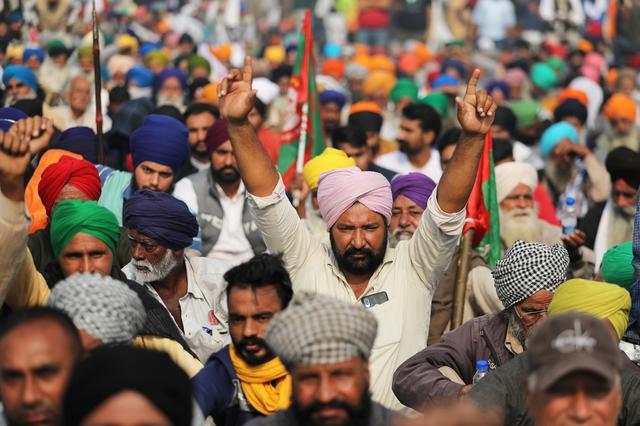- Jan: Day 1 (17/1/18)| Day 2 (18/01/18) | Day 3 (23/01/18) | Day 4 (24/1/18) | Day 5 (30/1/18)
- Feb: Day 6 (1/2/18) | Day 7 (6/2/18) | Day 8 (7/2/18) | Day 9 (8/2/18) | Day 10 (13/2/18) | Day 11 (20/2/18) | Day 12 (21/2/18) | Day 13 (22/2/18)
- Mar: Day 14 (6/3/18) | Day 15 (7/3/18)
This post is essentially a compilation of tweets from Gautam Bhatia, Prasanna and SFLC to understand how the Aadhaar hearing happened in the Supreme court.
Day 16: 13 Mar ’18
Senior Advocate P Chidambaram followed by Senior Advocate K V Vishwanathan counsel for petitioners arguing.
- Hearing to resume shortly.
- Mr. Chidambaram will continue with his arguments on Money Bill.
- Continues with his third proposition- speakers decision not final- subject to judicial review.
- Reads relevant excerpts from the case of sub-committee on judicial accountability.
- Now goes on to read the decision in S R Bommai v. Union of India. Reads from para 90 that “the satisfaction ofthe President mentioned in clause (1), shall be final and conclusive and shall not be questioned in any court on any ground.”
- Reads on the different cases referred in SR Bommai on the scope of judicial review.
- Says that any bill if passed in the guise of money bill strucks at the basic feature of Constitution- federalism.
- Now reads on the case of Raja Ram Pal v. Speaker.
- Reads on the case, says that validity of any proceeding in the Parliament on grounds of irregularity of procedure cannot be looked into by the court. However, illegality can be a ground for the courts to exercise judicial review.
- Further reads cases and says that if the impugned procedure adopted in Parliament is illegal and unconstitutional, judicial review lies.
- Further reads the case of Mohd.Saeed Siddiqui vs State Of U.P. wherein Uttar Pradesh Lokayukta and Up-Lokayuktas (Amendment) Act, 2012 was passed as a money bill. It was argued in the above case that the Bill was passed only by the Legislative Assembly and not by both the Houses, thus it was bad in law. The court however held that the decision of the Speaker that it is a Money Bill is final and the said decision cannot be disputed.
- The bench asks P Chidambaram to read some excerpts in the case of Mangalore Ganesh Beedi Works vs. State of Mysore AIR 1963 SC 589.
- P Chidambaram says that the above case doesn’t discuss anything but only makes a conclusion that the validity of the Act cannot be challenged on the ground that it offends Articles 197 to 199 and the procedure laid down in Art. 202 of the Constitution.
- Discussion on the decision in case of Pandit M. S. M. Sharma vs Shri Sri Krishna Sinha.
- P Chidambaram says that if the procedure is illegal and unconstitutional, it will be open to scrutiny in the court of law.
- Says that in the case of siddiqui, what was challenged was the amendment act. Says that there was no discussion in the case why this act was a money bill.
- Now reads the decision in case of Yogendra Kumar Jaiswal vs The State Of Bihar.
- Says that Mohd. Siddique as quoted in para 42 & 43 of this case may be reconsidered.
- Fourth Submission: Rajya Sabha has an important role in a federal constitution. Upper house in a bicameral constitution cannot be bypassed.
- Now reads the decision in Kuldip Nayar vs Union Of India 2006 7 SCC 1.
- Reads from the case the significance of Rajya Sabha. Says it is an important part of our federal structure.
- Bench rises for lunch.
- Court resumes post lunch.
- Mr. Chidambaram to continue with his fourth submission.
- Says that the concept of money bill is an ancient one. Goes into the history of it. Emphasizes the restricted domain which constitutes a money bill.
- Refers to the Constitution of Ireland and the definition of money bill contained therein. Focuses on the use of word ‘only’.
- Refers to the debate in Rajya Sabha on Aadhaar bill.
- Says that the question why it was termed as money bill was raised by an MP in the discussions.
- Says that the petitioner- Jairam Ramesh had moved for amendments in the bill which were adopted in Rajya Sabha.
- Says that however, these amendments were not considered by the Lok Sabha and it was passed in original.
- Hands over a compilation which lists the bills which were money bill.
- Now goes into the Aadhaar bill. Reads the long title and Preamble.
- Says that the apparent object of the bill is to make a law that will fit into 110(1)(c) & (g).
- Now goes to Section 7 & 8(4) of the Aadhaar Act.
- Reads section 23(2)(h). Says that assuming the act was for benefits, words “and other purposes” have been introduced insidiously in the provision. Further says that other purposes were not defined.
- Gives a similar example in section 54(2)(m).
- Then reads section 57.
- Justice DY Chandrachud asks if we cross the threshold of justiciability, which are the provisions are relatable to Art. 110?
- P Chidambaram: Question should be is there any provision in the Act which doesn’t fall under Ar. 110 (a) to (g). Because money bill can’t have any provision beyond (a) to (g).
- Says that provisions such as Section 57, 54, 23 go beyond the scope of Article 110. And hence it is not a money bill but merely a financial bill.
- Says that it wasn’t a money bill when introduced or certified.
- Justice DY Chandrachud: Does the entirety of the bill has to go or the portions can be severed-those provisions which fall under Art. 110.
- P Chidambaram: It will go in entirety. The provisions are not severable.
- Reads the relevant provisions of the Australian Constitution on money bill. Says that Art. 55 says that laws will have provisions relating ‘only’ to money bill. Provisions relating to any other matter will have no effect.
- Says that in present case, the provisions make it clear that it was not a money bill, then how could it have been passed as a money bill and the scrutiny of Rajya Sabha been bypassed.
- Says that if this could slip through as a money bill, virtually any bill could slip as a money bill. It sets a very dangerous precedent. Money bill is an extremely narrow subset of financial bill.
- This bill goes far beyond the intended purpose of delivery of subsidies.
- P Chidambaram concludes his arguments.
- Senior Advocate KV Viswanathan commences his arguments appearing on behalf of petitioners in W.P. 1056/2017 and 833/2013.
- Says he has 3 submissions-
- Collection, storage and use of data which invades privacy,
- Validity of Section 59, and
- exclusionary aspect of Section 7.
- Hands over his submissions to the Bench.
- Says he has 3 submissions-
- Chief Justice of India wants him to finish in 45 minutes.
- KV Viswanathan says that he wants time till tomorrow afternoon to finish his arguments.
- Reads Section 59.
- Justice DY Chandrachud says that what section 59 does is that whatever has been done between 2009 to 2016 should be deemed to have been done in 2016 after the passage of this Act. Thus, it doesn’t give retrospective validity to the acts.
- KV Viswanathan asks if that could’ve been done.
- Says that this Act was drafted on the assumption that privacy is not a fundamental right.
- Says that even assuming section 59 is valid, it has to be declared unconstitutional for violating Art. 14 & 21.
- Arvind Datar makes a submission on Aadhaar being mandatory for obtaining tatkal passport. Says can’t make Aadhaar mandatory in violation of SC order.
- Further asks the court to consider extension of deadlines.
- Attorney General says that there are other IDs eg. water bill, electeicity bill which can be taken. Aadhaar is only for expediting the procedure. Says that in case of passport under tatkal scheme, Aadhaar is required for out of turn consideration to expedite the process.
- Says that they are strictly following the orders of the Supreme Court.
- Some dispute regarding the production of application no. in case of non production of Aadhaar.
- Arvind Datar reads the order of 15th December.
- Chief Justice of India says that the deadline had been extended covering all the fields.
- Attorney General requests that the extension of deadlines should not affect section 7- the subsidies.
- Court passed an interim order directing that the order passed on earlier occasion stands extended. Further, this extension would also cover the issue of passports.
- Bench rises for the day.
- Thus, the deadlines for linking of Aadhaar stand extended till the disposal of this matter. There is a confusion if the extension of the deadlines applies to subsidies, benefits or services, where Aadhaar linkage has been made mandatory under S. 7 of the Aadhaar Act.
- Clarification: The deadline extension does not apply to the benefits, subsidies and services under Section 7 of the Act. The order of SC can be read here.



